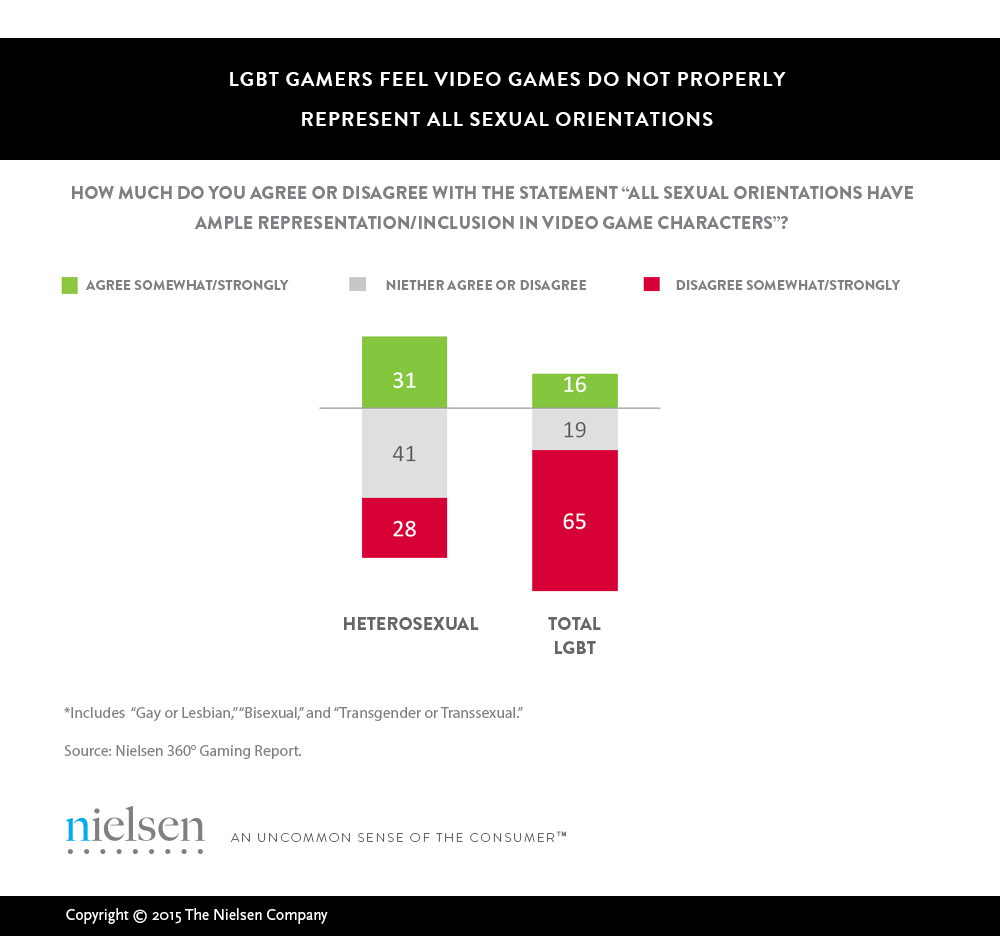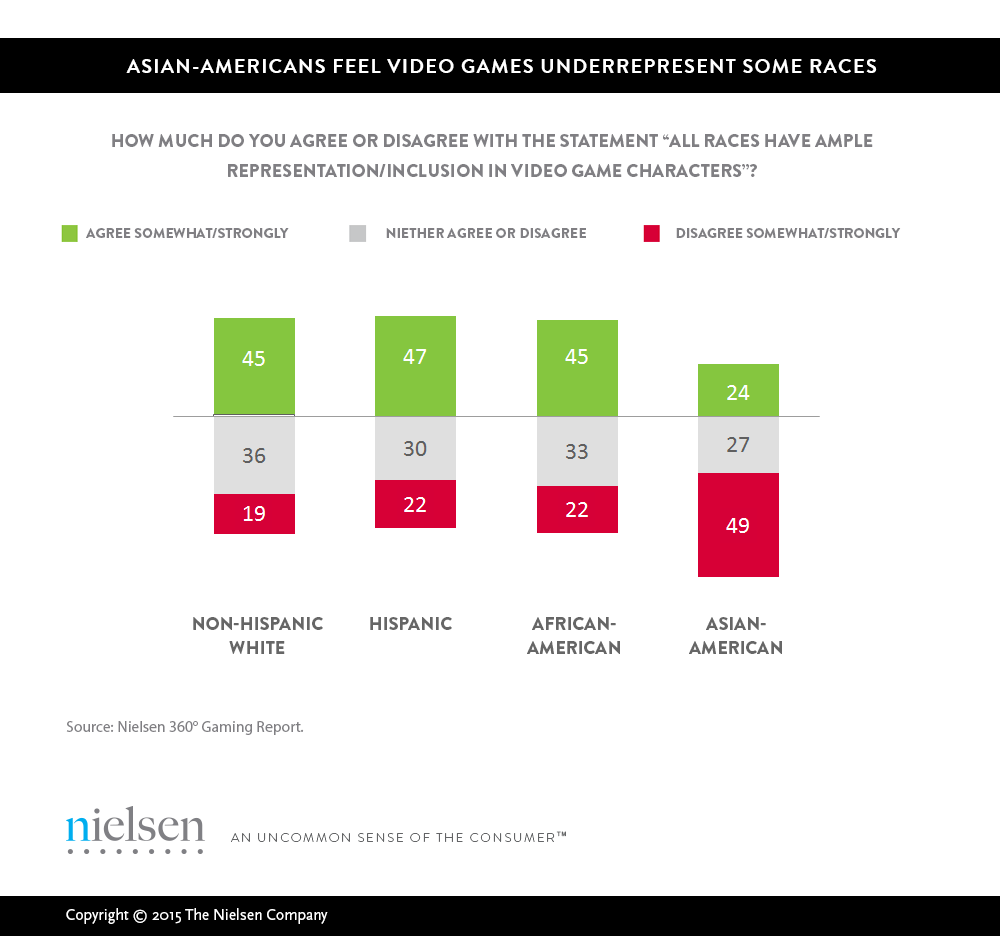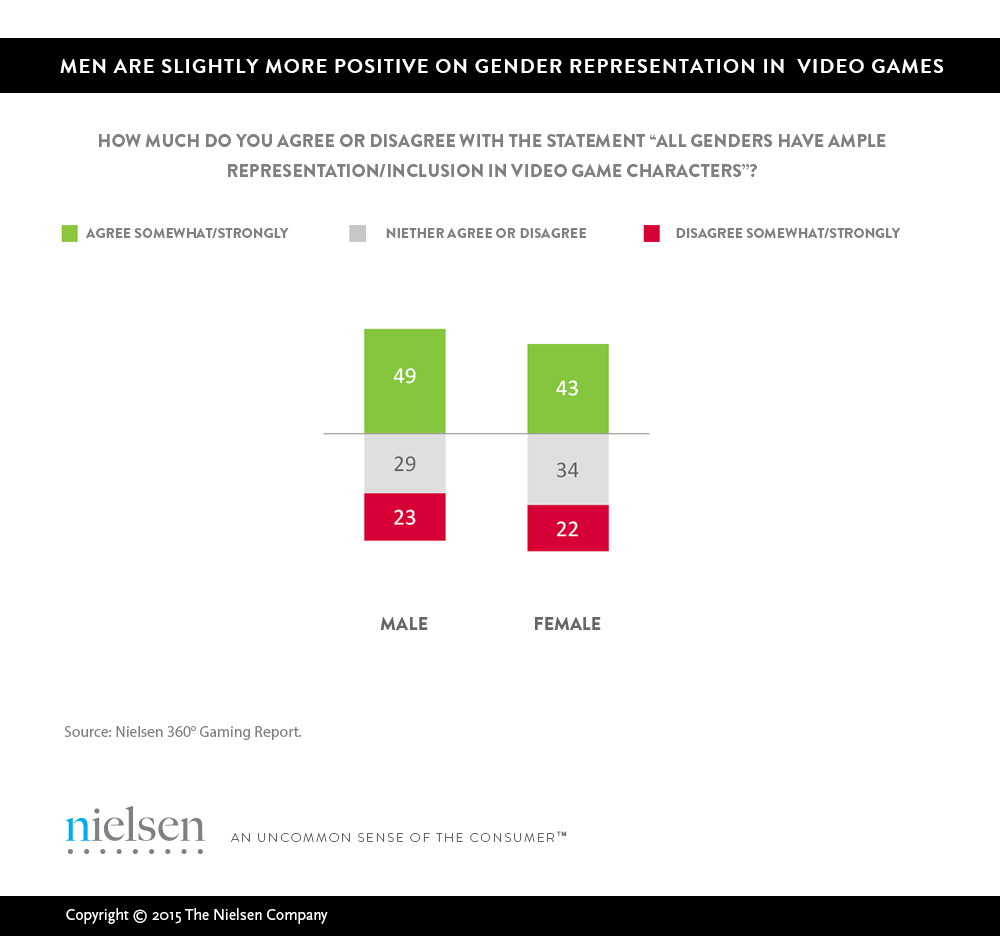From hedgehogs to soldiers and spies to princesses, many video games give players the chance to assume roles—and even create characters—that are very different from their daily lives. However, sometimes the option to play or build characters who reflect who we are IRL (in real life) can be important to feeling included in video gaming culture. But do video game characters reflect the diversity of players today?
A recent Nielsen study found that some multicultural gamers, specifically the LGBT and Asian-American communities, feel video game characters underrepresent certain groups. Among LGBT (lesbian, gay, bisexual and transgender) gamers, 65% don’t feel all sexual orientations have ample representation among video game characters, while just 16% believe they do. Comparatively, 31% of heterosexuals feel all sexual orientations are represented, while 28% do not believe this to be the case.

Asian-Americans are also likely to feel video game characters are not inclusive. Almost half of these gamers believe all races aren’t well represented in gaming character options, while less than a quarter think they are. On the other hand, Hispanics, African-Americans and non-Hispanic whites are much more positive about race representation.

Despite the controversies surrounding sexism in gaming culture that gained significant attention from the GamerGate hashtag on social media, the sexes are fairly balanced on the specific issue of gender representation in video games. While women gamers (43%) are less likely to agree all genders are amply included in video game characters than men (49%), roughly the same percent of women and men disagree.

Despite LGBT and Asian-American gamers’ feelings about the depiction of sexual orientation and race in video game characters, these groups as a whole are engaged gamers. In fact, 65% of all LGBT consumers play games of any type, slightly edging out heterosexual players (63%). Asian-Americans are even more likely to game (81%), leading all other races and ethnicities: African-Americans are the next most likely (71%), followed by non-Hispanic whites (61%) and Hispanics (55%). When it comes to gender, more men are gamers (68%) than women (56%).
Based on gamers’ attitudes toward character representation, players appear to be looking for game publishers to pay more attention to their individuality. Given these consumers are also engaged gamers, considering all demographics when creating video game characters, as well as in marketing efforts, may help the gaming industry reach their audience in more meaningful and personal ways.
For more information on gaming trends, register for our U.S. Gaming, A 360° View webinar.



